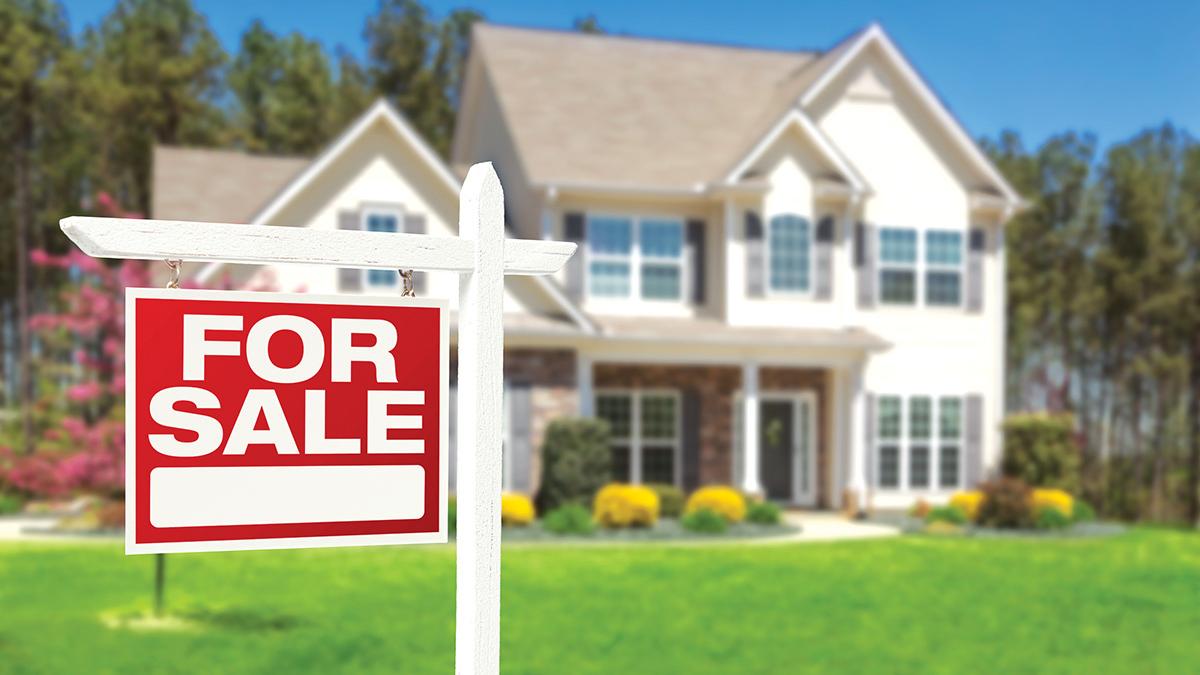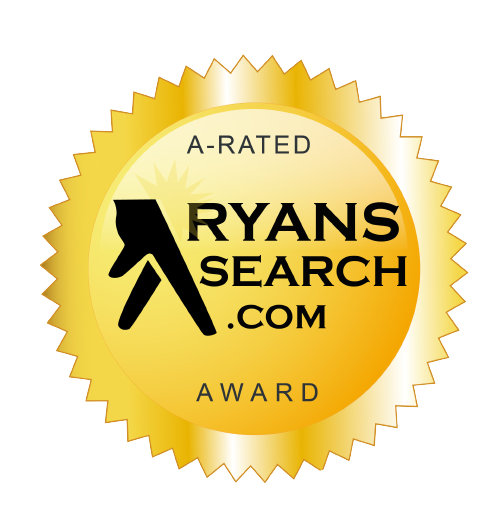
So you are trying to decide which is the better option, should you buy a house or should you rent? We at RyansSearch understand the difficulty of this choice and are here to help! We are going to go over most of the costs of both options as well as give you a small list of pros and cons. While we can’t make the decision for you we do want you to be more informed of everything that goes with either of these choices. This post will focus on buying a house and our next post will go into renting. So lets look into what all buying a house entails.
Lets first talk about the upfront costs that are paid either when your offer is accepted or paid at the actual closing.
• Down Payment: The down payment is the percentage of the purchase price that you pay upfront. You will need to specify a down payment amount (usually ranges from around 3.5% to more than 20% of the purchase price) when you give your purchase offer.
• Earnest Money: Earnest money is used to show the seller that you are actually serious about buying the property. Earnest money usually ranges from 1% to 3% of the purchase price. This money is then put into an escrow account by the seller and credited against your closing costs.
• Home Inspection: Unless you are properly trained you will want to get a licensed home inspector to come and find out if there are any potential problems and defects that you might not even know to look for. It usually cost $300 to $500 and is paid at the time of inspection.
• Home Appraisal: Lenders will require a home appraisal to ensure that the offer price matches that actual value of the house before approving a loan. Appraisal cost will usually run you about the same amount of the home inspection.
• First Year’s Homeowners Insurance: Homeowners insurance is something you will have to have prior to closing to secure a loan from lenders. You will also need to pay the first year’s premium upfront either on the date of purchase or at closing.
• Other Closing Costs: These are just some of the many line items that are bundled into your closing. Other closing costs could include credit report fee, lender’s and owner’s title insurance, property taxes, loan origination charges, recording taxes, state and local transfer taxes, first month’s mortgage interest, and a closing fee. As a basic rule of thumb your total closing costs can range from 2% to 4% of the purchase price.
Buying a house also comes with recurring costs that you will pay more than once. Some of these payments will be included in your monthly escrow payment that you make to your mortgage provider/lender, and the others you pay separately. Let’s have a look at what those recurring costs look like.
• Loan Payments: For the life of your mortgage loan you will need to make monthly principal and interest payments.
• Property Taxes: Your city or county sets this and as such the rates vary widely by location and even often change from year to year. Your monthly escrow payment will include property taxes- you pay one-twelfth of your annual tax burden each month.
• Homeowners Insurance: According to the Insurance Information Institute , the average annual U.S. homeowners insurance premium was $1,096 in 2013. As with your property taxes, you will pay one-twelfth of your annual homeowners premium in your monthly escrow payment.
• Utilities: Paying for water, gas, electric, garbage and recycling, cable and Internet, and maybe even more now falls solely on you as the homeowner. Be sure to do your research as these cost vary widely depending not only on location but usage as well.
• Maintenance: You are also now responsible for all the home maintenance and various upkeep that your house will require. This means that replacing fixtures, fixing appliances, all paint jobs and various other things around the house now falls to you to get fixed. While there is no way to tell what you will need to pay for a general rule of thumb is that you should expect to pay 1% of your home’s value per year on the various maintenance jobs that your house will need.
Finally lets talk about those one-time payments you will have to make. Most of these you can file under special payments that are far less predictable.
• Furnishing: This is especially important if you are a first time homeowner as your new home is probably larger than your previous living space. This means that you will need to buy furniture and various fixtures to fill your new house with. While purchasing secondhand furniture is a good way to reduce your expenses you will still need to figure out what you can buy that falls within your budget.
• Moving Costs: While some of you may be lucky enough to have great friends and a fleet of trucks and trailers available to you the rest of us will have to look into how exactly we get all of our belongings to our new house. This means looking into how much help you will need getting all moved in. Since this is completely dependent on how much stuff you have as well as how much help you need this can cost you anywhere form $100 to over $1,000.
• Repair: Anything that isn’t covered in your insurance plan will be up to you to get repaired. This is a great example of something that is far less predictable as it can be something as small as a little dent in the wall that needs to be repaired to a flooded basement.
• Renovation Projects: Home improvements can cost you anywhere from a couple hundred dollars to a couple thousand dollars, all of which depends on what exactly you plan to have done. The good news is that home improvements are more often than not something you plan for far in advance.
And with that we have gone over most of the costs that you need to take into account when considering whether or not to buy a house. So now the questions come down to what are the advantages and disadvantages to buying a house? Let’s look at some of the major advantages to buying a house first and see why you might want to buy a house.
- Building Equity Over Time
On most mortgages part of your monthly payment goes toward the loan’s interest while the rest of it pays down the principal. Every dollar you put toward your loan’s principle represents a dollar of equity. In other words every dollar towards your principle is a dollar towards the actual ownership of the property.
- Tax Benefits
Being a homeowner allows you to take advantage of several tax benefits including the Homestead exemption and federal tax deductions that aren’t available to renters. The Homestead exemption allows a portion of the property tax that would normally accrue to be exempted. For example if your state exempts the first $80,000 of the home’s value and your home is valued at $300,000 it means that you home will be taxed as if it were worth $220,000. Federal Tax deductions all you to deduct property taxes and the interest paid on your mortgage.
- Potential for Rental Income
This one is pretty self-explanatory. By renting out part or all of the property you can turn the property into a source of income. This can be something as small as renting out your basement to a friend.
- More Creative Freedom
A small head’s up, when you are a homeowner the home is yours to do with as you please. This means decorating, DIY projects, and any and all home improvements are up to you. You can do as you please in the house and you don’t have to worry about answering to someone else. That new kitchen you’ve always wanted is now a dream you can achieve.
- Sense of Belonging and Community
Homeowners usually stay in their homes for longer than renters do which means that they are far more likely to put down roots and become a part of their communities. From joining the local neighborhood association to block parties all of these things are something you might not have done as a renter who knows that they are only going be staying there for a year or two.
Now lets look at some of the risks or disadvantages to buying a house so that you can get a general idea of both the good and the bad.
- Potential for Financial Loss
While it is true that you will build equity over time you must also understand that equity does not equate to automatic profit. This is because if the values of the homes in your area decrease or remain flat during your tenure as homeowner the appraised value of your home might go down. If this happens you risk a financial loss, a problem that renters don’t have to deal with.
- Responsibility for Maintenance and Repairs
As we stated earlier when you own a house you are in charge of getting everything fixed in your house. If we go by the estimate of paying about 1% of the value of your home annually towards maintenance and repairs and you live in a $300,000 house for 10 years, that’s $30,000 over that period.
- High Upfront Costs
While these costs vary greatly depending on the location and value of the home you are buying, you can usually expect to pay out no less than 5.5% of your homes value before you even move in. Most renters on the other hand pay a relatively low upfront costs and a lot of them get their security deposit back and can put it towards their next new security deposit.
While there are more factors in whether or not you should buy a house these are most of the main ones. The good, the bad, and the ugly of house ownership has been laid out for you in hopes that it helps make your decision a little easier. Our next Blog post will come cover the good, bad, and ugly sides of renting and will be posted this Friday.
